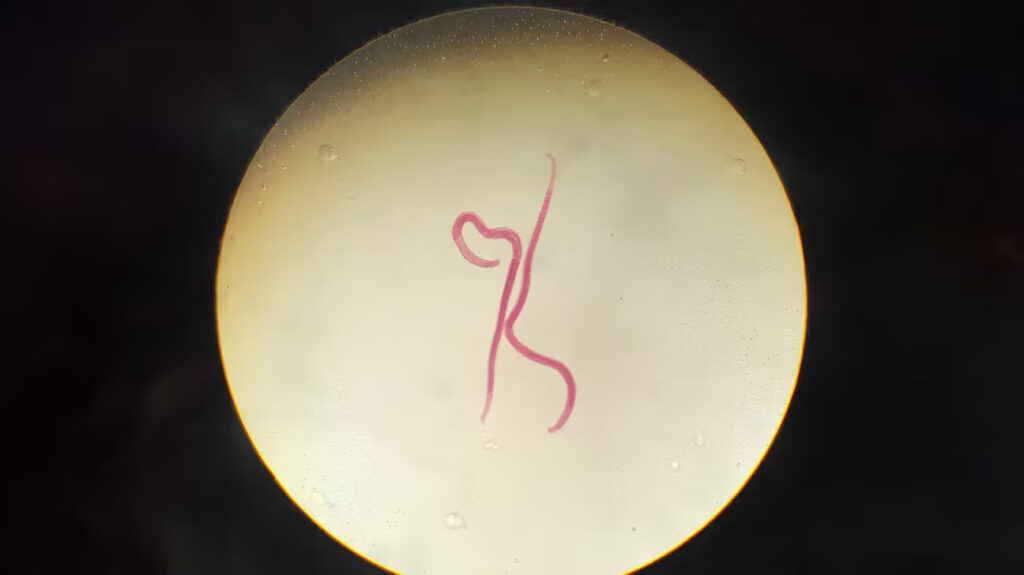Worm infections, also known as helminth infections, can last for varying periods depending on the type of worm, the individual’s immune response, and environmental factors. Without treatment, these infections can persist for months, years, or even decades, potentially leading to severe health complications.
This article explores the different types of worm infections, their typical duration without treatment, and the role of medications like Nizonide 500 mg in managing these conditions.
Types of Worm Infections and Their Duration Without Treatment
Roundworm Infections (Ascariasis)
Overview: Roundworm infections are among the most common helminth infections globally, particularly in areas with poor sanitation. The worms can grow up to 35 cm in length and live in the human intestine.
Duration: Without treatment, roundworm infections can persist for 1 to 2 years. The worms can continue to reproduce, leading to a cycle of infection and reinfection, especially in unsanitary environments.
Symptoms: Many people may remain asymptomatic, but symptoms can include abdominal pain, malnutrition, and in severe cases, intestinal blockage.
Hookworm Infections
Overview: Hookworms are another common type of intestinal parasite. They attach to the intestinal lining and feed on blood, leading to anemia and other nutritional deficiencies.
Duration: Without treatment, hookworms can live for 1 to 5 years inside the host. The infection can persist as long as the worms are alive and reproducing.
Symptoms: Chronic hookworm infections can cause significant blood loss, leading to anemia, fatigue, and developmental issues in children.
Tapeworm Infections (Taeniasis)
Overview: Tapeworms are flat, segmented worms that can grow to several meters in length. They can be acquired through the consumption of undercooked or contaminated meat.
Duration: Tapeworm infections can last for decades without treatment. The adult tapeworm can live in the intestines, shedding segments that contain eggs, which can lead to further infection or spread to others.
Symptoms: Symptoms may include abdominal discomfort, weight loss, and in some cases, neurological complications if the larvae migrate to other tissues (a condition known as cysticercosis).
Whipworm Infections (Trichuriasis)
Overview: Whipworms are intestinal parasites that can cause trichuriasis, a common infection in tropical regions. The worms are usually small, measuring about 4 to 5 cm in length.
Duration: Whipworm infections can persist for up to 2 years without treatment. The eggs can survive in the environment for several years, making reinfection common in endemic areas.
Symptoms: Symptoms may include diarrhea, abdominal pain, and in severe cases, rectal prolapse.
Pinworm Infections (Enterobiasis)
Overview: Pinworms are tiny, white worms that commonly infect children. The infection spreads easily in crowded environments such as schools and daycare centers.
Duration: Pinworm infections can last for several months if left untreated. However, the infection can be self-limiting if the host’s immune system eliminates the worms.
Symptoms: The most common symptom is intense itching around the anus, especially at night.
Complications of Untreated Worm Infections
Worm infections, if left untreated, can lead to a range of complications depending on the type of worm and the severity of the infection. These complications can include:
Malnutrition: Many worms feed on the host’s nutrients, leading to malnutrition, stunted growth, and developmental delays in children.
Anemia: Hookworms and other blood-feeding parasites can cause significant blood loss, leading to anemia.
Intestinal Blockage: Large numbers of worms, such as roundworms, can cause blockages in the intestines, which may require surgical intervention.
Organ Damage: Infections like cysticercosis, caused by tapeworm larvae, can lead to cyst formation in the brain and other organs, causing seizures and other neurological issues.
Chronic Inflammation: Persistent infections can cause chronic inflammation in the intestines, leading to long-term digestive problems.
Role of Nizonide 500 mg in Treating Worm Infections
The nizonide 500mg is a medication commonly used to treat various types of parasitic infections, including worm infections. The active ingredient in Nizonide is nitazoxanide, an antiparasitic agent that works by interfering with the energy production of the parasites, ultimately leading to their death.
Mechanism of Action: Nitazoxanide inhibits the enzyme-dependent processes in the parasites, making it difficult for them to survive and reproduce. This action effectively clears the infection from the host’s body.
Indications: Nizonide 500 mg is often prescribed for treating giardiasis, cryptosporidiosis, and other protozoal infections. It has also been used off-label to treat certain helminth infections.
Dosage and Administration: The standard dosage for adults is 500 mg taken twice daily for 3 days. However, the exact dosage and duration may vary depending on the type of infection and the patient’s overall health.
Efficacy: Studies have shown that Nizonide 500 mg is highly effective in treating worm infections, especially when used as part of a comprehensive treatment plan that includes hygiene measures to prevent reinfection.
Side Effects: Common side effects of Nizonide 500 mg include nausea, abdominal pain, and headache. These side effects are generally mild and temporary.
Preventing Worm Infections
Preventing worm infections requires a combination of personal hygiene, environmental sanitation, and public health measures. Key preventive strategies include:
Proper Handwashing: Regular handwashing with soap and water can reduce the risk of ingesting worm eggs.
Safe Food Practices: Cooking meat thoroughly and washing fruits and vegetables can prevent tapeworm and other foodborne infections.
Sanitation: Access to clean water and proper sanitation facilities can reduce the spread of worms in communities.
Deworming Programs: Mass deworming programs in schools and communities can help control the prevalence of worm infections in endemic areas.
Conclusion
Worm infections can last for varying periods without treatment, potentially leading to serious health complications. The duration of infection depends on the type of worm, with some infections persisting for years or even decades.
Nizonide 500 mg is an effective medication for treating these infections, but prevention remains the best strategy. By practicing good hygiene, ensuring safe food practices, and supporting public health initiatives, the spread of worm infections can be significantly reduced.
